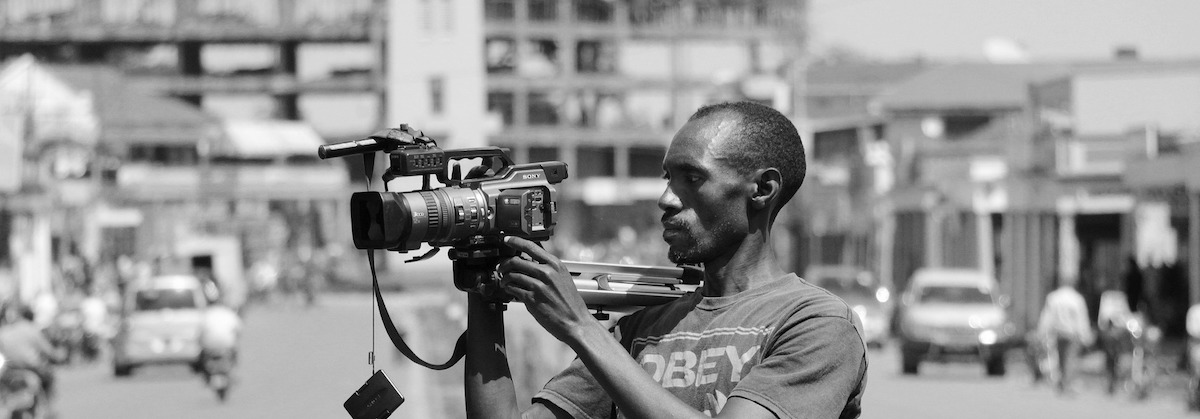CAMRI scholars, Winston Mano and Loubna El Mckouar, have announced publication of their jointly edited book entitled: Media Ownership in Africa in the Digital Age: Challenges, Continuity and Change. The book, published under the Routledge Contemporary Africa Series, discusses the ownership of media and communications in Africa. It offers a comprehensive overview of multiple dimensions of media ownership through rare and authoritative perspectives, including both historical and contemporary digital developments. It also provides a range of new perspectives, including on the role of Big Techs, such as Meta (formerly known as Facebook), in a scramble for Africa’s digital ecosystem. The march of Big Techs into Africa brings both opportunities and concerns about the ownership and control of the continent’s technological future. The authors altogether analyse evolving forms of ownership and their implications on media concentration and democracy across Africa. The book offers a nuanced account of how media ownership structures are in some instances captured with an ever-growing and complex ecosystem that also has new opportunities for public interest media. Offering a significant representation of the trends and diversity of existing media systems, the book goes beyond the postcolonial geographical divisions of North and Sub-Saharan Africa to highlight common patterns and significant similarities and differences of communications ownerships between and within African countries. The contributors reveal media and communications ownership patterns in Africa that are centralised and yet decentralising and, in some cases, battling, resurging and globalising.
Mano’s own chapter (chapter 2 – Big Tech’s Scramble for Africa: An Afrokological Critique) urges Africa to clearly define and centre its local, national and the African Union’s digital policy frameworks. This must be done with the aim of fostering local innovation and diversified public interest digital ownership models from an African vantagepoint. Big Techs are using their dominance to adopt and off-board start-ups in ways that kill local initiatives. From an Afrokological decolonial premise, the chapter names and shames self-serving, capitalistic and “controversial initiatives” by tech corporations under the guise of increasing connectivity and investment. The chapter argues that what is needed is centring of local talent within a new relational accountability, which goes beyond mere validation of African technological efforts by these Big Techs.
Contents:
Part One: Regional and Tech mapping: an overview of Media structure in North and Sub-Saharan Africa
Chapter 2: Big Tech’s Scramble for Africa: An Afrokological Critique, Winston Mano
Chapter 3: The African “Hidden Media Capture” by Julia Cagé & Elisa Mougin
Chapter 4: Perverted Loyalties: Media Capture, Control and Patrimonialism in Sub-Saharan Africa by Hayes Mawindi Mabweazara, Cleophas Taurai Muneri, Faith Ndlovu
Chapter 5: Media from the Atlantic to the Indian Ocean Communication Systems in Portuguese Speaking Africa by Aslak Orre and Helge Rønning
Part Two: The Current State of Private and State-Owned Media Models: Policy, Licencing and Advertising
Chapter 6: Telecommunications & Broadcasting Regulation in Ethiopia: A Dialectical Discussion of Policy and Politics by Téwodros W. Workneh
Chapter 7: Economic Precariousness and Political ownership of Media in Nigeria: Implications for Democratic Consolidation in Nigeria by Babasola Shina
Chapter 8: Media Ownership, Politics and Propaganda: The Nigerian Example by Anthony Akaeze
Chapter 9: Privately Owned But Government “Tele-Guided”: The Paradox of Private Media Broadcasting in Cameroon by Floribert Patrick C. Endong
Chapter 10: The Senegalese Council for Broadcasting Regulation: A giant with feet of clay by Layire Diop
Chapter 11: Cosmetic reforms and elite continuity of media ownership patterns in post-colonial Zimbabwe by Stanley Tsarwe and Admire Mare
Chapter 12: Media Ownership and Development in Post-Qaddafi Libya by Nabil Ouassini and Anwar Ouassini
Chapter 13: Egyptian Media Ownership and Pluralism: Overview, Performance and Challenges by Dr. Rasha Allam
Part Three: Change and Challenges: The way ahead
Chapter 14: Community Media Ownership in the Context of Donor Funding by Rose N. Kimani
Chapter 15: Media Ownership and Digital Authenticity in Slum TV by Daniel Paul O’Brien
Chapter 16: Are traditional platforms muffled by cyber-media? A review on the shift in media ownership in Nigeria- Janet Aver Adikpo, Peter Iorper Ugondo, Tivlumun Gabriel Nyitse
Image by Charles Nambasi from Pixabay












